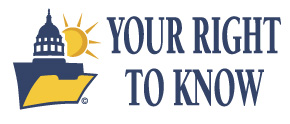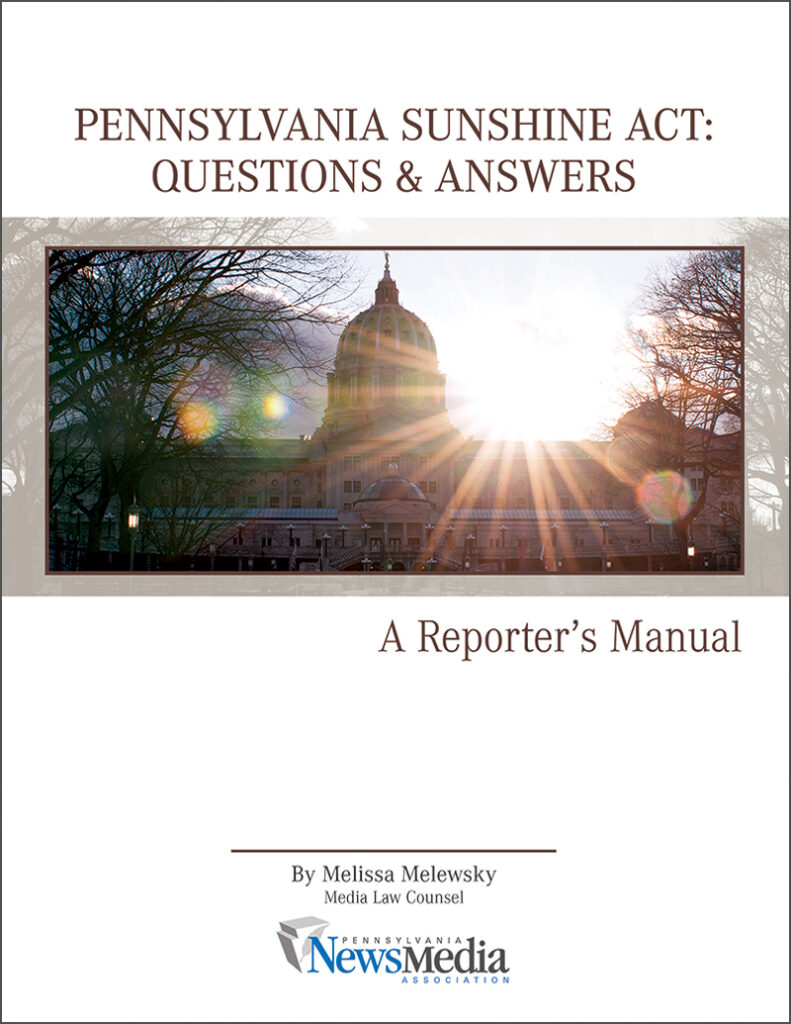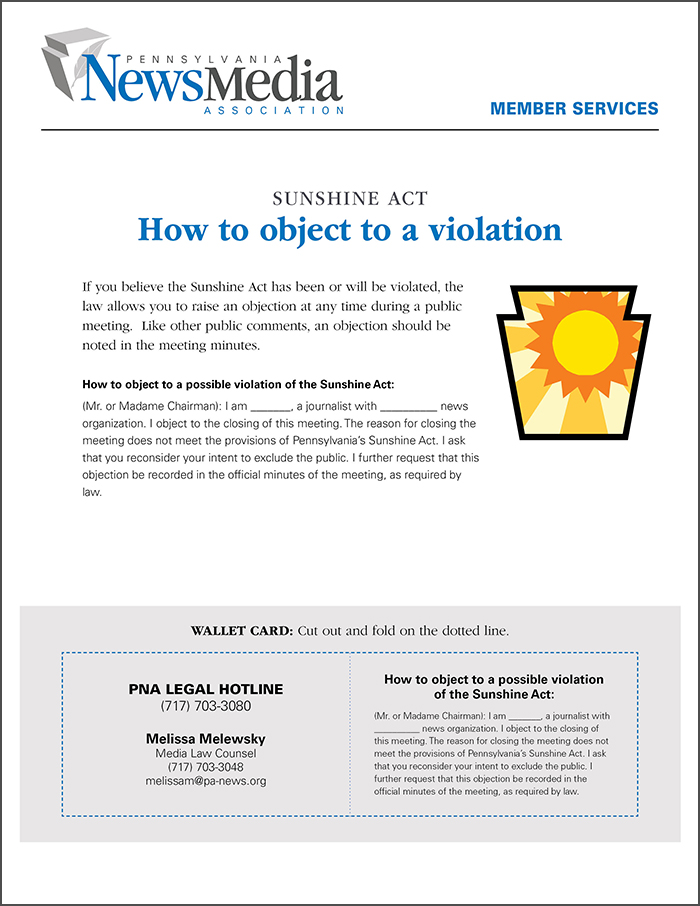What are the Sunshine Act &
the Right to Know Law?
The Sunshine Act and Right to Know Law are Pennsylvania’s primary public access laws. These laws guarantee the public’s right to access government information at public meetings and through public records. Public access to meetings and records is fundamental to the public’s ability to understand government actions and hold government officials accountable.

The Sunshine Act
The Sunshine Act applies to public agencies, which include Pennsylvania executive branch agencies, the General Assembly, and municipal authorities, such as township boards of supervisors and local school boards. The Act requires agencies to hold public meetings any time a quorum deliberates agency business or takes official action. As with many laws, there are exceptions to the public meeting requirements of the Sunshine Act, but the law begins with a statement of intent, stressing the right of the public to witness the decision-making process to ensure that the democratic process functions properly.
Sunshine Week | March 16 – 22, 2025
Every March news media organizations across the country celebrate Sunshine Week, highlighting the importance of accountability and transparency in government reporting. It’s also an opportunity for the industry to showcase the vital work of journalists who strive every day for a more
open government.
Throughout the year, PNA advocates on your behalf to access essential information from all levels of government. We remain focused on the Right-to-Know Law, Sunshine Act, and related transparency laws as well as ensuring that public notices remain in newspapers of general circulation.
Pennsylvania Sunshine Act: Questions & Answers

Guide to Making a
Sunshine Act Objection

Joyce Davis’s op-ed on Sunshine Week

Joyce M. Davis is a veteran journalist, former foreign correspondent and author who has lived and worked around the globe for some of the nation’s most respected news organizations. She is Outreach & Opinion Editor for PennLive and The Patriot-News.
Amy Kristin Sanders’ op-ed on Sunshine Week

Amy Kristin Sanders is the John and Ann Curley Chair in First Amendment at Penn State as
well as a licensed attorney and former journalist.
Legal Hotline questions about public meetings and the Sunshine Act
NOTE: Member login is required to access archived posts. If you need your PNA username and password, please email info@panewsmedia.org with your name, title and phone number and we will send you your credentials.
Learn more about the Sunshine Act from the Pennsylvania Office of Open Records.
The Right-to-Know Law
The Right to Know Law applies to executive branch agencies and local agencies, including school districts, townships, other municipalities, and authorities. The law also applies on a limited basis to the General Assembly and to the court system’s financial records. The law begins with the presumption that records in the possession of government agencies are public records and must be provided within the framework of the law. There are exemptions to the law that allow agencies to deny public access, but the law places the burden of proof on an agency to show why a requested record is not public.
Legal Hotline questions about public records and the Right-to-Know Law
NOTE: Member login is required to access archived posts. If you need your PNA username and password, please email info@panewsmedia.org with your name, title and phone number and we will send you your credentials.
- 911 Recordings and Transcripts
- Access to Election Returns
- Access to Warrants
- Act 22 and Law Enforcement Recordings
- Clean Slate Law
- Clery Act
- Complex Data Fees Media Exemption
- Election Code – Access to Ballots and Returns
- Election Code – Access to Returns
- Election Code – Access to Candidate Information
- Election Guide: Access to Polling Places, Records and Computation
- Emergency Time Response Logs
- Law Enforcement Records
- Proposed Budget Copies and Inspection
- Public Employee Severance Package
- Recordings of Public Meetings
- Redaction Fees
- Right-To-Know Law Inspection Fees
- RTKL and Death Information
- RTKL and Law Enforcement Records
- RTKL and Mediation
- RTKL and Public Meeting Records
- RTKL and Specificity
- Settlements and Confidentiality Clause
Learn more about the Right-to-Know Law from the Pennsylvania Office of Open Records.

